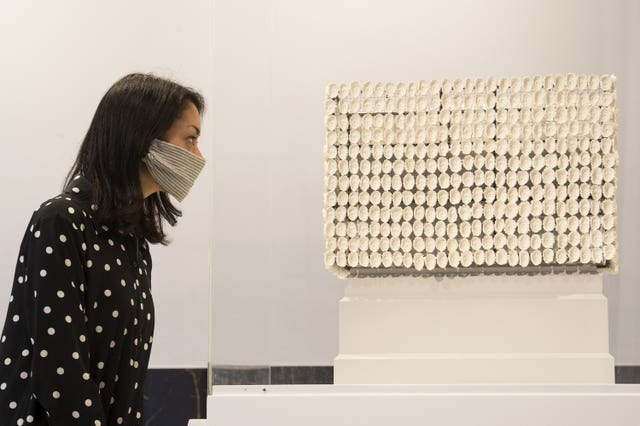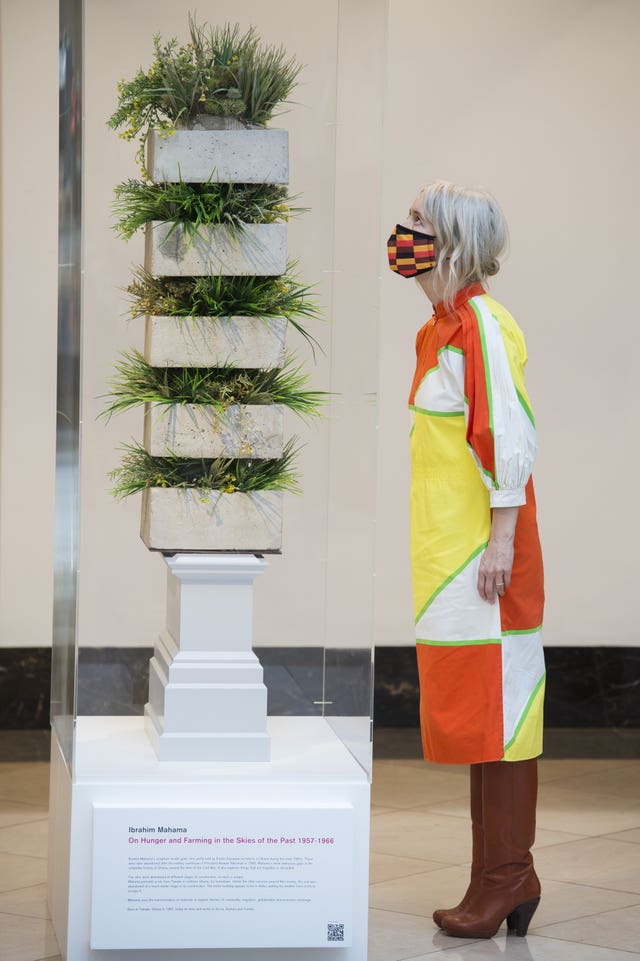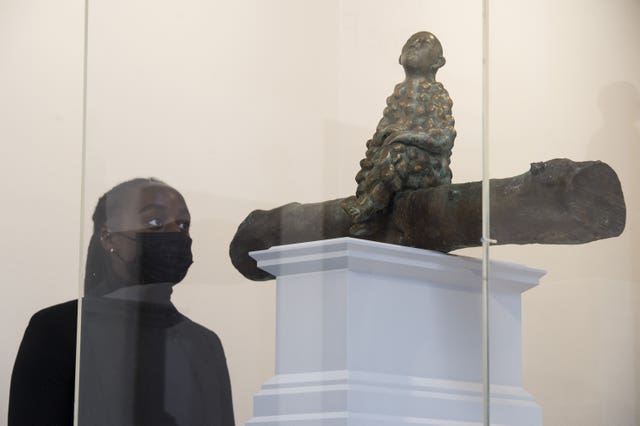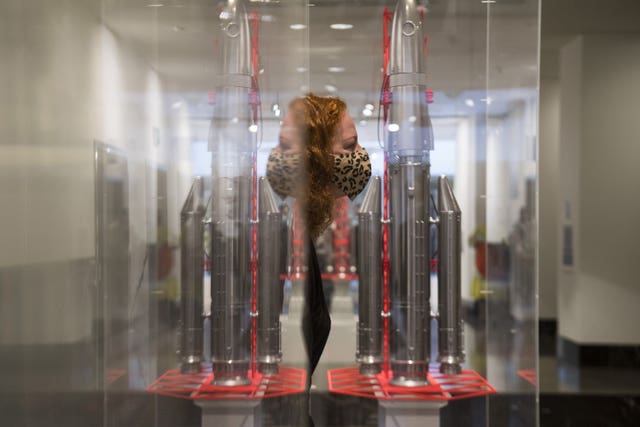‘Most international’ shortlist announced for Trafalgar Square’s Fourth Plinth
The public are invited to have their say on the sculptures online.

A towering grain silo filled with plants and a work made from the casts of faces of 850 transgender people are among the latest proposals for Trafalgar Square’s Fourth Plinth.
The landmark, which was built in 1841 but remained empty due to a lack of funds, has been home to a rolling commission of public artworks for the last two decades.
Six works by artists including Malawi-born Samson Kambalu and Germany-based Paloma Varga Weisz have gone on display at the National Gallery, which reopened last week, as well as online.
Mayor of London Sadiq Khan described the proposals as the “most international line-up of artists to date”.

Improntas (Imprint) by Mexican conceptual artist Teresa Margolles features casts of the faces of 850 trans people, most of whom are sex workers, arranged around the plinth in the shape of a Tzompantli, a skull rack from Mesoamerican civilisations.
Ibrahim Mahama recreates a grain silo partially built by Eastern European architects in Ghana in the early 1960s, titled On Hunger And Farming In The Skies Of The Past 1957-1966.

Goshka Macuga has produced a large rocket, titled Gonogo, encouraging audiences to look beyond their immediate surroundings to outer space.
Other contenders including the German folklore-inspired Bumpman for Trafalgar Square by Varga Weisz and The Jewellery Tree by Nicole Eisenman.

Audiences can also view the shortlist and previous commissions through an immersive experience hosted by Google Arts and Culture online.
Mr Khan said: “These proposals from our most international line-up of artists to date shows yet again why the Fourth Plinth is the world’s most high-profile public art prize.

Ekow Eshun, chairman of the Fourth Plinth Commissioning Group, said: “Today we reveal the proposed artworks for the Fourth Plinth from six of the world’s most exciting contemporary artists.
“The imaginative range and creative ambition that each artist has shown further cements the importance of the Fourth Plinth programme in the international cultural landscape.
“Debate is at the heart of the programme, and the Commissioning Group look forward to hearing the public’s thoughts on the proposals.”
Dr Gabriele Finaldi, director of the National Gallery, said: “The Fourth Plinth is located just a few yards from the National Gallery in Trafalgar Square, and I am delighted that we can host the exhibition of the shortlisted artists’ proposals in the Gallery.
“I think it is important that we find ways to encourage the public to look at and become interested in art, whether it’s the great pictures in our museums or new art in public spaces, and I encourage the public to have their say on these inspiring proposals.”





